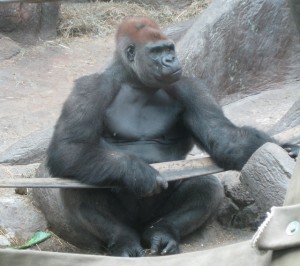Barack Obama has quite a knack for addressing deep themes with his surface eloquence. What are those deep themes? Linguist George Lakoff has taken the time to set them out in a recent Huffpo article, and I think he's thought it through impressively. Lakoff's article is well worth a slow read. What is Obama really about?
Behind the Obama Code are seven crucial intellectual moves that I believe are historically, practically, and cognitively appropriate, as well as politically astute. They are not all obvious, and jointly they may seem mysterious. That is why it is worth sorting them out one-by-one.
Note that for Lakoff (and Obama), "progressive values" (#2) are the natural result of genuine and uncorrupted empathy:
Those empathy-based moral values are the opposite of the conservative focus on individual responsibility without social responsibility. They make it intolerable to tolerate a president who is The Decider--who gets to decide without caring about or listening to anybody. Empathy-based values are opposed to the pure self-interest of a laissez-faire "free market," which assumes that greed is good and that seeking self-interest will magically maximize everyone's interests. They oppose a purely self-interested view of America in foreign policy. Obama's foreign policy is empathy-based, concerned with people as well as states--with poverty, education, disease, water, the rights of women and children, ethnic cleansing, and so on around the world.
Here are Lakoff's seven insights into the ideas that drive Obama's spoken words:
1. Values Over Programs
2. Progressive Values are American Values
3. Biconceptualism and the New Bipartisanship
4. Protection and Empowerment
5. Morality and Economics Fit Together
6. Systemic Causation and Systemic Risk
7. Contested Concepts and Patriotic Language

